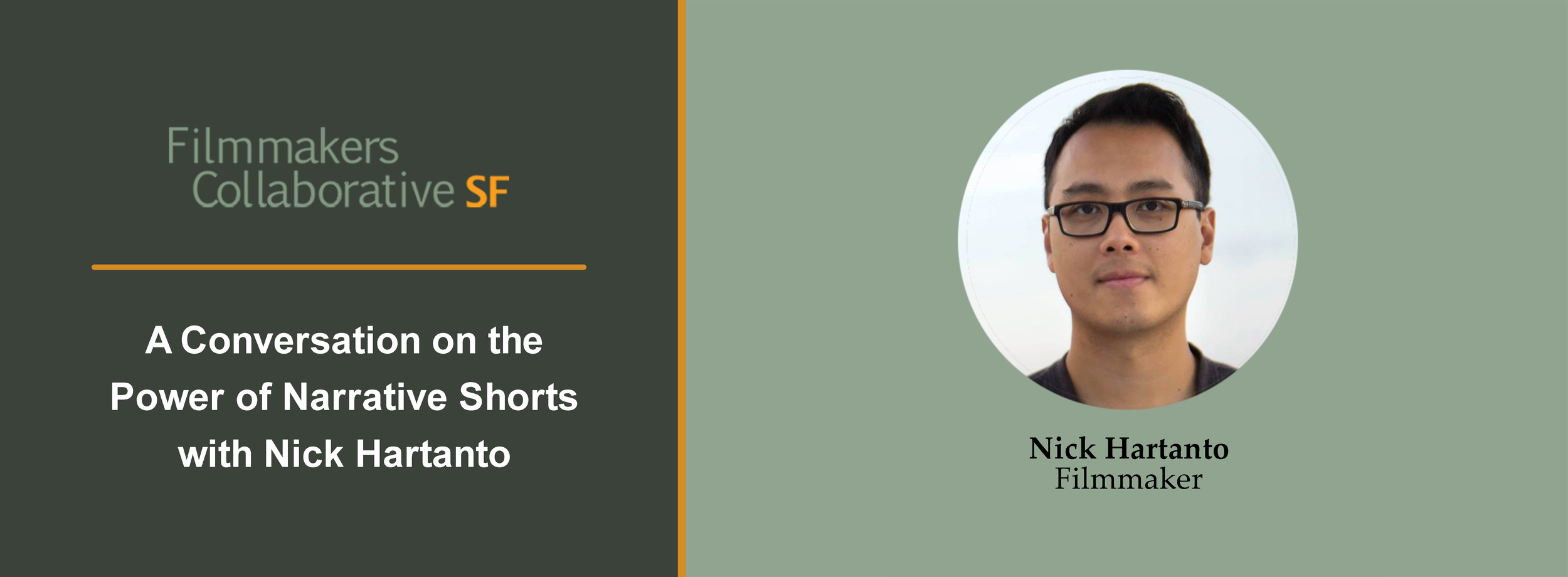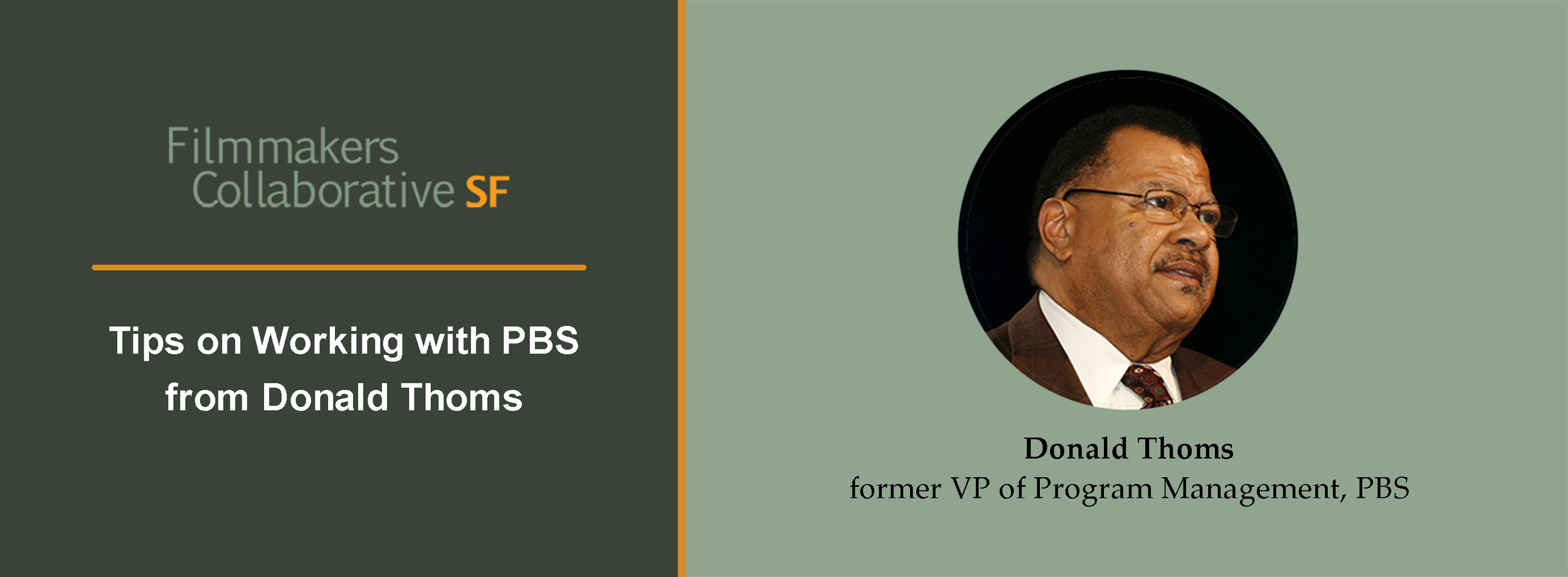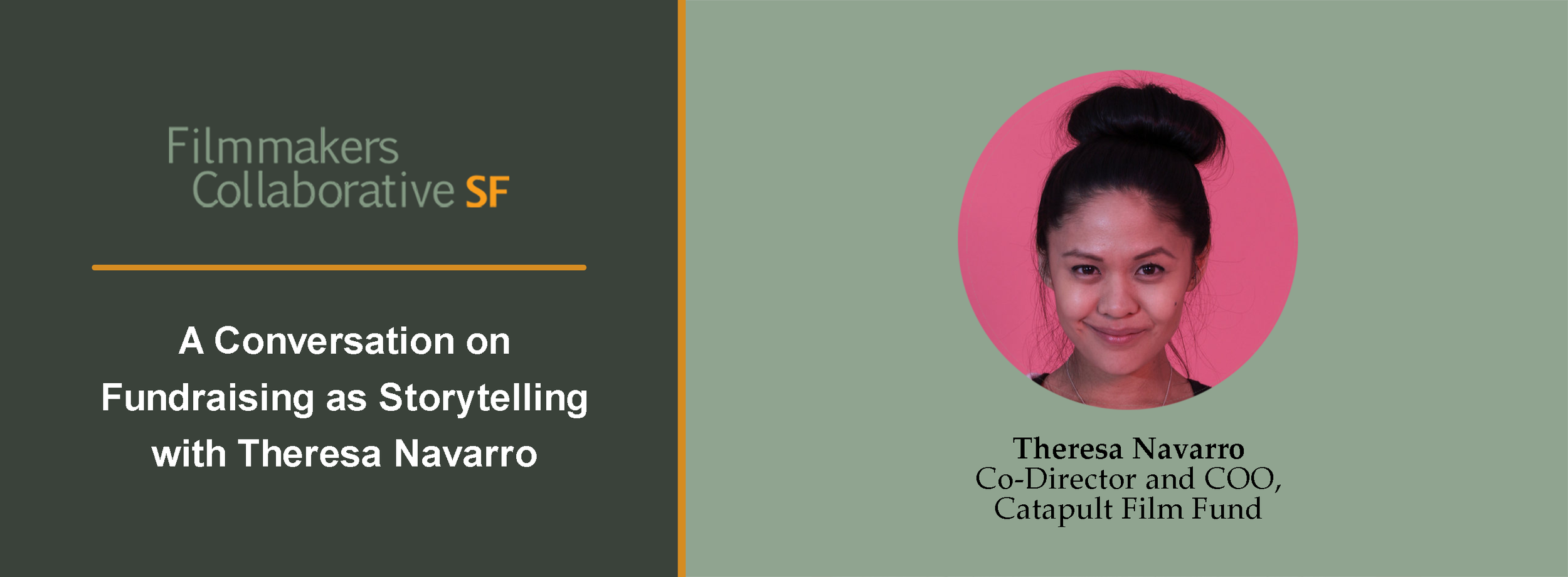A Conversation on the Power of Narrative Shorts
with Nick Hartanto
“Short films are such a powerful vehicle for representing different voices. It’s a medium that allows me to write from my experience and from an authentic place.”
- Nick Hartanto, filmmaker
We spoke with Nick Hartanto, an Indonesian American filmmaker, to talk about his experience making narrative shorts, from getting a short picked up by HBO to the challenges of being the only Indonesian American filmmaker he knows. Nick’s current project, Daly City, is an autobiographical story drawing from his experiences growing up and watching his immigrant parents assimilate in Daly City, California.
Filmmakers Collaborative SF is proud to serve as the fiscal sponsor for Daly City.
Can you tell us about your background and where you are in your filmmaking career?
I was born in Surabaya, Indonesia, but I came to America when I was really young. So, I'm very much Americanized and I grew up in Daly City in the Bay Area. The two things that I'm completely obsessed with and have been my entire life have been food and film.
When I graduated film school at Emerson College in Boston, I moved back to the Bay Area and I became a line cook in the fine dining world in San Francisco for about a year. I worked at a restaurant called Nopa, which really changed my life and inspired me to make a movie with my film partner called The Dishwasher. That ended up being the most successful film we had ever made. It got into Tribeca, it won a special jury mention award there, and then it was bought by HBO for a two year streaming contract. So that experience really made me feel like this is my voice. I can tell stories that represent my immigrant experience through my unique perspective and connection to food. That's what my new film, Daly City, is about as well. It's even more personal because it’s completely autobiographical and it's also a story about food.
How do you see these themes of food and identity coming into play with your new project, Daly City?
There's that whole adage of “write what you know.” Make a film that only you can tell. I really do think short films are a good medium for that. I want to say something that hasn't been said before and I think that I found that both with The Dishwasher and Daly City.
When I was ten years old, my mother and I were headed to a church potluck. She just got off work and didn't have time to cook so we stopped by a hole in the wall Chinese restaurant that we always go to. She told me that we were going to transfer this chicken that she bought at this Chinese restaurant to a casserole dish and we were going to pretend that she had cooked it. When we got to the church, which is predominantly a white congregation, they assumed that the dish was a traditional Indonesian family dish and I witnessed my mother just lay into that. She tried to impress them with it and by the end of the night, the pastor brought her up on stage and presented her with an award for best dish at the potluck.
As an adult, I used to tell that story as a joke to entertain people, but when I started to really dive into it, the main question I was fascinated by was why? Why did she feel the need to impress this group of predominantly white church goers? Then the film’s story goes on to another scene that happened in my life. We go to pick up my father from work after that potluck, and I see him get bullied by his boss. They're telling him jokes that are at his expense, but because of language barriers, he can't quite understand it. Later, as an adult, I talked to my father about these experiences, and I found out that he actually did understand the sentiment that they were making fun of him. He was playing this part in his workplace in order to appease his boss.
Why did you choose to focus the story around these two memories from your life?
As a filmmaker and storyteller, I look at the scenario of mother and father and these two scenes in my life and I realized that they're both doing the same thing that night. They're both embodying the model minority. It's not to say that they did something wrong or anything like that. In a way, they're doing it out of survival. This story is about inspiring a new generation of immigrants so that we can understand our parents' sacrifices in becoming the model minority and transcend them. We must realize that our sense of worth should not be defined by others but by us alone.
I've seen documentaries about the model minority myth, but it’s rarely looked at in the narrative form. I think the hard part about making a narrative film about it is that it's such an internal conflict. But I think that the scenario within this story, with the food masked as Chinese and all the cultural ironies, is a perfect vehicle to tell this story. It’s about the cost of assimilation.
A problem that your story highlights is the lack of knowledge about different Asian cultures. What is it like for you being an Indonesian American filmmaker? Are you still navigating these same types of issues in your career?
As an Indonesian American filmmaker, I literally don't know another Indonesian American filmmaker here. I know Indonesian filmmakers from Indonesia, but not any in America. Some of the reactions that I've gotten from people reading my script is, “wow, I've never seen Indonesian culture represented like this,” even the simple pleasure of how we eat food with our hands or the type of dishes we eat. I can't think of a single Indonesian American immigrant story that I've ever seen and so that definitely motivates me.
Having been a filmmaker in San Francisco and New York, there's a huge Asian community and they're very supportive. But if you were just asking about the Indonesian experience, I definitely feel like I'm on an island. It's difficult. My film partner and I made a short film before this called Atrophy and just trying to cast an elderly Indonesian couple was like finding a needle in a haystack. We ended up having a Filipino actor to play the father and a Chinese woman to play the mother.
When I'm thinking about casting for this new short, I think it would be amazing for me to find a truly Indonesian cast, with actual Indonesian actors speaking Indonesian in the movie and cooking Indonesian food. But, how do I find these people? It might fall to finding non-actors. I've met a lot of Asian actors where they only came into acting later in life. They waited and they're so talented, but they just never got the shot.
What obstacles have you faced with trying to be in this industry where you are underrepresented?
When I was a little kid, I would always come home after school and draw comics. It was only as an adult that I realized all the characters in the universe I created were white. It was my default and I think that really struck me. It’s important to see yourself represented on the screen and in the books that you’re reading. I literally could not imagine making myself the hero of my own story and that’s been a big inspiration for me to tell authentic stories from my experience.
The biggest obstacle is trying to find actors who represent my culture. To another degree, I’ve had an obstacle with getting critical feedback on my script. Most of my film colleagues were white and none of them were Asian. I still get good feedback from them, but they are missing a giant chunk of the subtext within the script. I literally can't get the right feedback that I want to understand these nuances. There is something frustrating about finding that out about my network.
I have been trying to make a conscious effort to go to AAPI film festivals, trying to meet more filmmakers there, and trying to help each other out. I met somebody at a film festival who recommended that I join an AAPI writer's group in L.A. and they workshopped my script. I watched a documentary about the model minority myth and ended up calling the filmmaker and we had an amazing conversation about the themes of our films. I feel like that’s the way to do it. That was me trying to find solutions for those hurdles.
What advice do you have for other emerging filmmakers and filmmakers of color?
I think the solution that I found was to support your community. If you're lucky enough to be living in a city like San Francisco or New York or L.A., there is a thriving Asian American community and there are AAPI organizations. Go to their meetings, pitch your scripts, meet people, go to their movies. That’s a big thing—watch other filmmakers' movies and then tell them what you thought of it. Volunteer to help them, ask if they need notes on a script or an edit, if they need an extra hand on set. That is supporting your community and building this network that can only benefit you.
What do you think about the current state of representation in the industry and what do you see for your future?
I feel like I'm at the beginning of my career. I'm still making shorts but my dream is to make a feature. Short films are such a powerful vehicle for representing different voices. It’s a medium that allows me to write from my experience and from an authentic place. I have an outline for a feature film but I know that I don't have the money for it. But in a way, I plucked two of the best scenes from my outline, and I made Daly City. It’s much more doable for me to be able to make this short film.
And I do think there is a market for short films. It's not the usual case, but our film was acquired by HBO and that opened my eyes to the fact that HBO has a whole section of short films. They're really good and always rotating, and they're always scouring the best film festivals. And then you have film festivals and websites like Short of the Week that show all these short films. That's really where I see all these filmmakers of color. I guess we're all, in a way, hoping to jump to that next step in getting a feature made and getting that film actually distributed. I aspire to that and I do think that things are going in a great direction right now in terms of representation.




